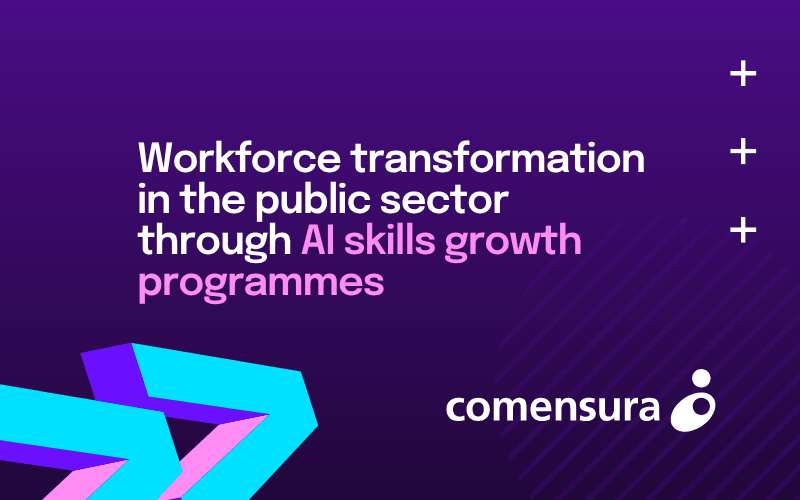

Author
3 minutes
Sustainable Service Procurement: Why It Matters and How to Achieve It
In an era where sustainability and ethics have taken centre stage, the procurement process has evolved to encompass more than just cost-saving measures.
In 2025, it is estimated that around 75% of people globally express concern about environmental issues. This growing awareness reflects the increasing emphasis on sustainability and the urgent need to address climate change, pollution, and conservation of natural resources.
Sustainable Service Procurement is an essential part of any procurement strategy that ensures the responsible sourcing and acquisition of services while considering environmental, social, and economic impacts.
Why Sustainable Service Procurement Matters
Sustainable Service Procurement is about making informed, deliberate choices that contribute to long-term sustainability goals. It extends beyond transactions and creates a culture of ethical sourcing and procurement innovation. The key reasons why it matters are:
-
Environmental impact: Sustainable sourcing helps reduce negative environmental impact by selecting suppliers and services that prioritise eco-friendly practices. This includes reducing carbon footprints, managing waste responsibly, and conserving natural resources.
-
Social responsibility: Socially responsible sourcing ensures that procurement decisions support fair labour practices, promote human rights, and contribute to community development, having a positive impact on society in general.
-
Economic benefits: Ethical procurement practices can lead to long-term economic benefits by building resilient supply chains and enhancing supplier relationships. This can result in cost savings, improved efficiency, and ensure a competitive edge in the market.
How to Achieve Sustainable Service Procurement
Achieving Sustainable Service Procurement involves a multifaceted approach that integrates ethical procurement practices, comprehensive and ongoing assessment, and forward thinking strategies. The key steps to ensure success are:
-
Developing robust procurement strategies: Creating effective procurement strategies is essential to sustainable service procurement. By setting clear sustainability goals, establishing ethical standards, and integrating them into the procurement process, organisations can ensure a strategic approach that puts sustainability at its core.
-
Implementing ethical sourcing practices: Ethical sourcing requires identifying and collaborating with suppliers who follow ethical practices, such as fair labour conditions and environmental best practices. This may involve conducting thorough supplier sustainability assessments to evaluate their compliance with ethical standards.
-
Conducting supplier audits: Regular supplier audits are crucial for monitoring and ensuring that suppliers maintain their commitment to sustainability and ethical practices, as well as identifying areas for improvement and foster transparency between procurement professionals and suppliers.
-
Leveraging procurement technology solutions: Advanced procurement technology solutions can streamline procurement processes, enhance visibility, and provide valuable insights for better decision-making. These solutions enable efficient tracking of sustainability metrics and facilitate collaboration among stakeholders.
-
Engaging stakeholders in procurement: Stakeholder engagement in procurement is vital for aligning procurement practices with broader sustainability goals. Engaging various stakeholders, including suppliers, customers, and community members, fosters a collaborative approach to sustainability and ensures that diverse perspectives are considered.
-
Ensuring supplier sustainability assessment: Supplier sustainability assessment is a comprehensive evaluation of suppliers' sustainability practices. This includes assessing their environmental impact, social responsibility, and economic performance.
-
Nurturing a culture of sustainable sourcing: Sustainable sourcing involves raising awareness, providing training, and incentivising sustainable practices among procurement professionals.
Sustainable Service Procurement is an indispensable practice in today's business environment. It is a holistic approach that considers the environmental, social, and economic impacts of procurement decisions. By adopting ethical procurement practices, leveraging technology solutions, and engaging stakeholders, organisations can achieve sustainable procurement goals and contribute to a better world. Procurement professionals must continue to innovate and embrace sustainability as a core aspect of their operations, ensuring that their procurement practices not only support business objectives but also promote a sustainable future.
Insights to drive workforce performance
Workforce insights in your inbox
Sign up for our newsletter with the latest workforce management news, insights, analysis and more.
United Kingdom
First Floor, Mulberry House
Parkland Square
750 Capability Green
Luton, LU1 3LU
Australia
Suite 1403
Level 14, 309 Kent Street
Sydney
NSW 2000










